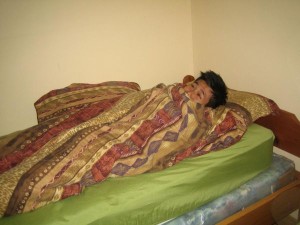A stroke is basically caused by an abrupt blockage in the flow of blood to the brain. This can lead to rapid death of the brain cells. If the individual is not given immediate emergency care, it can cause serious damage to the brain. The brain lesions after an individual sustained a stroke are the abnormal tissue that forms after trauma of a stroke and indicates damage to a particular part of the brain. It is important to note that each lobe of the brain is prone to injury from a stroke.
Brain lesions in the frontal lobe
The frontal lobe is the front most part of the brain and responsible for various functions such as selective attention, working memory, ability to plan, solve problems and organization. Additionally, the frontal lobe is also linked with emotions and personality. When the frontal lobe is damaged, the brain lesions can cause changes to the personality, irrationality and difficulty paying attention and memorizing.
Occipital lobe
The occipital lobe is situated at the back part of the head and responsible for processing information such as recognition of colors and shapes as well as visual reception. Once this part of the brain is damaged during a stroke, visual problems will start to arise that will surely affect the individual.
Parietal lobe

The parietal lobe is situated behind the frontal lobe. It contains the main sensory cortex which controls the sensations from pressure and touch. Once the right half of the parietal lobe is damaged, the individual can experience visual-spatial issues that lead to problems with moving around. If the left half of the lobe is damaged, the individual will have problems with the spoken and written language.
Temporal lobe
The temporal lobe is situated on the side of the head right above the ears. It is responsible for holding the hippocampus which processes short-term memories into long-term memories. It is important to note that the right side of the temporal lobe is responsible for visual memories while the left side is responsible for the verbal memories. Any brain lesion on either part of the temporal lobe can lead to the disruption of normal memory functions.
Cerebellum
The cerebellum is responsible for controlling the balance and movement as well as the reflexes and coordination. Individuals with brain lesions on this part of the brain due to a stroke will experience problems with moving, walking and coordination of the movements.
Brain stem
The brain stem is responsible for the essential involuntary functions of the body such as the heart rate, breathing, digestion and alertness. Once an injury occurs on the brain stem due to a stroke, the individual can become severely impaired or even enter a vegetative state. The other symptoms include difficulty speaking, paralysis, difficulty swallowing, nausea from uncontrolled eye movements and dizziness.
